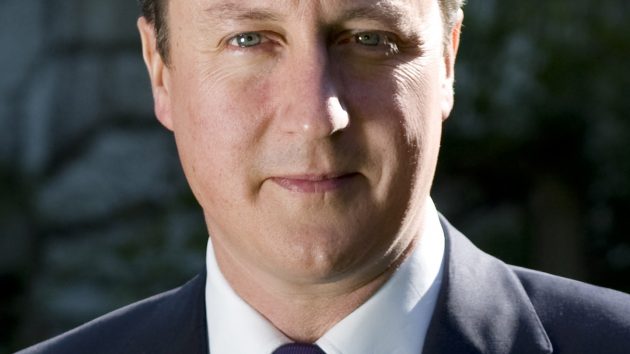David Cameron gegen Pornographie: Jetzt mit Kreditkartendaten
David Camerons Kreuzzug gegen frei zugängliche Pornographie geht weiter. Seine neueste Idee ist, das Alter mit Kreditkartendaten zu verifizieren. Was eine wirklich blöde Idee ist.
Man fragt sich ja mittlerweile, was für ein Problem David Camerons Regierung mit Pornographie hat. Nachdem im Dezember letzten Jahres Filme mit bestimmten Sexpraktiken – teilweise aus nicht nachvollziehbaren Gründen – in Großbritannien nicht mehr produziert und verkauft werden durften, geht die Saga David Cameron gegen Pornographie wieder weiter.
„David Cameron could force porn websites to shut down if they don’t put restrictions in place to stop under 18s viewing adult videos.
The industry will be given the chance to install age verification controls of its own, to ensure that children can’t see porn. But if they fail to, sites could be turned off entirely, the Government has said.“I want to see age restrictions put into place or these websites will face being shut down,” Cameron said in a statement.
The Government has suggested that sites could ban people through payment providers or other means. If that doesn’t work, then legislation could be introduced that will make it “an offence in the UK to publish pornography online without age verification controls, possibly with a regulator to oversee and enforce controls”, according to a Government statement.“
schreibt The Independent.
Wofür? Für die Kinder, natürlich.
“Whilst great progress has been made, we remain acutely aware of the risks and dangers that young people face online. This is why we are committed to taking action to protect children from harmful content. Companies delivering adult content in the UK must take steps to make sure these sites are behind age verification controls.”,
zitiert The Guardian die britische Ministerin für Internetsicherheit, Joanna Shields.
Das große Problem dabei ist natürlich nicht nur, dass diese Methode mit Sicherheit niemanden abhalten wird, sich Pornos im Netz anzuschauen – Menschen, vor allem Teenager, sind da einfallsreich. Und wenn selbst Chinas Große Firewall löchrig ist, wird es die kleine von Großbritannien auch sein.
Das große Problem sind – wie üblich – die Daten, die dafür aufgezeichnet werden müssten.
„But this isn’t just totally ineffective at preventing bad outcomes: it creates even worse problems. Censorware is like regexps for politicians: now you have two problems. Because everything leaks. I don’t just mean these fools. I also mean these delightful fellows.
There is exactly one gold standard for not leaking user data: not gathering or retaining it in the first place.
So what do you get when you combine a database of the porn-viewing habits of everyone in the UK, cross-referenced with their credit-card details? Well, if you’re presently worried that your cheating boss might be embezzling your company into the dirt to pay off his blackmailer, imagine that, on a national scale, only the blackmailers get to sort by net worth.“
schreibt Cory Doctorow bei BoingBoing.
Wie auch schon bei der Ankündigung der Liste mit Filterbegriffen formiert sich Protest.
„The government’s filter, which comes into full effect this month after a year of lobbying, will block far more than dirty pictures. That was always the intention, and in recent weeks it has become clear that the mission creep of internet censorship is even creepier than campaigners had feared. In the name of protecting children from a rotten tide of raunchy videos, a terrifying precedent is being set for state control of the digital commons.“,
schrieb Laurie Penny damals im Guardian.
Und während es ja sicherlich keine schlechte Idee ist, den Zugang zu strafrechtlich relevanten Inhalten schwieriger zu machen, und Minderjährigen den Zugriff auf Pornographie nicht unbedingt einfach, ist die britische Methode einfach Punkt für Punkt die Wikipedia-Liste Internet Censorship in the United Kingdom zu erweitern ganz bestimmt nicht die beste.
Bildquellen
- David_Cameron_official: Mattbuch / Open Government License


 Jan Fischer
Jan Fischer